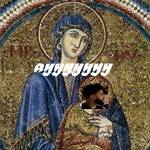MODAL TEXTUALITIES


2026 Syllables in London
2650 Syllables of Authentic Reflection
by Nicholas Syrianus Katsafanas
Two thousand and twenty six syllables composed while staying in Earl's Court, London from Feb. 1-8 2026.
by Nicholas Syrianus Katsafanas
These 2650 syllables cut to the deepest parts of my life. They're basically my autobiography. Nothing else could be more important about my experience on this planet than what's expressed in these, approximately, 2,650 syllables.
1st Edition Released: 02/11/2026
Mode: >.75
1751:2026 .864
28 pp.
1st Edition Released: 01/31/2026
Mode: >.75
2226:2647 .841
32 pp.
The World Divides Into Facts
by Nicholas Syrianus Katsafanas
Reimi and Buddy share what can only be deemed God-given honest opinions that they have every right to express on their trip to East Asia. Then Reimi and her sister Nikke take in an anonymous French Mannerist's painting. Finally, Reimi shares with Buddy a particularly noteworthy month-long dip into insanity her sister Nikke recently endured.
Mode: >.75
1st Edition Released: 12/24/25
ISBN: 979-8-9987102-8-5
102 pp.
5.5" x 8.5" Paperback, Saddle Stitched
Released: Jan. 12 2026
1st Edition
137 pp.
ISBN: 979-8-9987102-8-5
Release Date: 12/24/2025
PERFECT BOUND PAPERBACK BOOKS
Blue Hydrangea
by Katreena Dayacap Katsafanas
Blue Hydrangea is a Zuihitsu of considerable scope and depth, perhaps the best example of the genre in recent American literature in my view. Katreena at her peak powers becomes one with the pen, not metaphorically, but actually synthesizing herself with the writing utensil until the subject-object assumption becomes a product of absurdist fiction.
From the Poet: "Nothing can separate love, and I know this to be true. Gathering my thoughts, journal entries, poetry and prose from the last eight years has been incredibly difficult. I held off for a very long time in fear of bringing myself through those painful memories before, during and after my mother’s death. But here it is. By finally opening up to all the change since my mom passed, I’m able to find inner peace and with that, true healing. I love you, Mom. I prayed and hoped that we would beat cancer. We fought against your disease together and gave each other strength through that unimaginable struggle. I know you are with me in spirit and there helping me rebuild my life and become open to all that has changed since I lost you. I know it is natural for me to miss you, even now. I wish we could make new memories together, but I hope you know that the memories of the time we spent together will always bring me happiness." - Tree
(c) 2025 Katreena Dayacap
5x8 Perfect Bound
ISBN: 979-8-9987102-5-4
Released: Sep. 3 2025
by Nicholas Syrianus Katsafanas
Adam Metropolis and Larry Isosceles, two moderately opinionated Greek theologians, share their thoughts on the true nature of the number 1.99999 repeating and various theories of the so-called Western world. Mode: >.667
5x8 Perfect Bound | ISBN: 979-8-9987102-3-0 | Paperback Release Date (2nd Edition): July 2025
Excerpt: The Number 1.9 Repeating (Canto I)
We hadn’t been there ninety seconds,
because it was right as we walked
in the backyard of the high school graduation party
that her cousin approached us
and, without the slightest hesitation,
asked my girlfriend right to her face—
‘Did you bring my
tupperware with you?’
It took perhaps longer than I
care to confess
to fully recognize what exactly it was
she was referencing.
Oh, the oxtail, I reflected,
a second or so later,
as I recalled there being a beautiful,
wood-covered, piece of glass of tupperware
sitting in our refrigerator for over a week,
incubating an oxtail dish
that had, unfortunately, totally expired—
it was so far gone
I was hesitant to even open
the top of the tupperware container,
despite the fact
the top of the container was a beautiful,
wood finished piece.
There was no doubt in my mind
that this oxtail was, at that point,
not just completely expired
but essentially a type of meat soup,
a type of liquified corpse,
which of course disgusted me severely.
Cleaning it out struck me as a grotesque idea.
I can’t say for certain,
but it’s more likely than not
that I threw it into the trash—
tupperware, wood top, and oxtail.
‘Oh, so sorry,
I’ll definitely bring it back soon!’ she said,
and I glanced at her and attempted to decipher
if she had any idea the tupperware
and the oxtail were both long gone,
that both now sat in a garbage heap,
a pile of trash somewhere,
at the bottom of a public dump,
still filled with decayed, grotesque oxtail,
and that her cousin would never again
own the privilege of placing her leftovers
into that piece of tupperware
with the beautiful wood cover.
That tupperware was finished.
BLUE VELVET REVIEW RECORDS
CF James is a collaboration between producer Curtis J Folco and multi-instrumentalist Michael Lamantia, Jr. They're great friends of the Review. Mike and I actually started The Mineral Spring Vegetarian Run Club back in 2018.
In my mind Tree is one of the foremost emcees of her generation.
Buzuki taqsim improvisations in the rebetika style accompanied by adroit drums and recorded live with no edits or overdubs.
PDFs & PAMPHLETS

S+P (Σύννεφο και Πρίαπος)
by Nicholas Syrianus Katsafanas
Cloud Strife and Priapus, both virtually depicted with shifting images depicted across eras—from Playstation 1 to Playstation 5, from Ancient Athens to Imperial Rome—one holding a Buster Sword that's, of course, vaguely phallic, and the other holding a large phallus that's, of course, often used as a deadly weapon, both tortured via an ambiguous demigod-adjacent genetic lineage (Jenova and Aphrodite?)—S+P investigates, both directly and via specific character digressions, these two confounding mirror images over the course of its 20 modal cantos.
Mode: >.667
1st Edition
239 pp.
ISBN: 979-8-9987102-7-8
Release Date: 10/31/2025
The Madness of a Cloud
by Nicholas Syrianus Katsafanas
An extended modal tract that comprises 50% of S+P Σύννεφα και Πρίαπος, printed in a limited edition square pamphlet style.
Cloud Strife, indulging in a few days off from mercenary work in the Sector 7 slums, begins to experience an inkling that his essence may be virtually emanated, mostly while he's drinking somewhat excessively at a so-called “friend’s” bar, Seventh Heaven.
Download the PDF at nickk.net
The Madness of a Cloud (1st Edition)
Echoes: 8,536
Syllables: 12,015
Approximate Self-Similarity: .7104
Mean Line Length: 375.47 syllables
Distance from 377: -0.41%
Epilogue
Echoes: 2,474
Syllables: 3,446
Approximate Self-Similarity: .7179
Mean Line Length: 143.58 syllables
Distance from 144: -0.29%
(c) 2025 Nicholas Syrianus Katsafanas
5.5x5.5 saddle stitched 64pp
ISBN: 979-8-9987102-4-7





